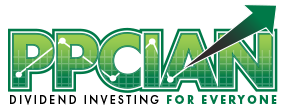As you know, I’m a huge fan of the corporate pay per click career path. This career path has been extremely rewarding for me and I wouldn’t trade it for anything. PPC may sound like an extremely focused discipline and it is. At the same time, there do exist multiple career paths within pay per click (and online marketing in general). Today, I’m looking forward to discussing three of my favorite career opportunities and my thoughts around their strengths and weaknesses.
PPC Career Path 1: The Agency Route

A few weeks ago, I attended SMX West. If you’ve been to SMX or another search marketing conference such as SES or ad:tech, I’m sure you’ve noticed the huge number of search marketing agencies. Put simply, agencies such as iProspect are big business and are only getting bigger. So now that we’ve established that agencies are a huge force within online marketing, let’s discuss a few of the pros and cons of the agency career path.
The biggest pro of the agency career path, in my opinion, is the ability to work with a variety of clients. In the agency world, you’ll typically get several accounts across a variety of verticals and business models. Moreover, these accounts change over time! In my opinion, this puts the search marketer on the fast track to accumulating a very deep knowledge of online marketing. Another benefit of the PPC agency career path: You get serious client face time. If you enjoy the human side of things as much as crunching the numbers, the agency career path can give you that optimal mix.
So, everything sounds perfect, right? Of course not! There are pros and cons with all decisions in life. There’s one big con that comes to mind with the agency path. As an external party, you are one step removed from the core business operations. This typically equates to less day-to-day financial visibility and responsibility. Agency teams are given volume and CPA goals, but it’s sometimes not the same as living and breathing the numbers like an internal team. This isn’t the agency’s fault, it’s a data integration thing. Just think about it: As an agency, you’re not going to be hooked into all of the client’s back end data. An internal team, however, often has access to more intimate data which often equates to more precise financial responsibility.
Pay Per Click Career Path 2: The Startup
Another popular career path in pay per click is the startup route. Let’s start with the pros again. First and foremost, startups offer the ability to grow quickly. When I say grow, I actually mean growing several things: your skills, responsibilities, title, salary, and wealth (via stock options). It’s essentially a case of risk and reward. Startups are the riskiest career path because of their volatile nature (most startups fail). However, if you’re able to join a successful startup (like I did), the benefits can be tremendous! Startups, especially earlier in your career, can be the fast track to rapid pay per click career growth. Moreover, if you leave a startup at a senior title and are able to earn the same title (or even higher) at a more established pay per click organization, you are absolutely golden.
Of course, there also exist several cons with the startup career path. First and foremost, it’s much more challenging to launch brand new pay per click campaigns versus growing and maintaining existing ones (like many of us do at larger companies). This is a good challenge in the sense that you can master PPC much quicker launching a business from scratch. At the same time, it’s a con because campaign launches can fail. If the business model isn’t perfected, your pay per click campaigns could very well lose money for an extended period of time. Moreover, as the pay per click manager, you may get blamed for these losses even if they are not under your direct control. This is definitely pressure that you want to be ready to handle!
The second big con of startups: You may be on your own. Unless you’re rather senior, pay per click is a team sport. Startups, however, have limited budget and often have a pay per click team of one. If you’re super independent, this may be a great route for you. If you prefer a team, however, a larger company may make a lot more sense.
PPC Career Path 3: The Mid To Large Sized Direct Advertiser
All career paths presented here are awesome! However, if I had to rank them, I’d tie the first two as the (very close) runner up and I’d make the mid to large sized direct advertiser the clear winner. Let’s start with the pros of the mid to large sized direct advertiser. Remember in the agency section when I talked about data issues? This is rarely a problem at a large direct advertiser. You can hook directly into your organization’s immense data and leverage it for complex bidding decisions! This alone is the biggest advantage of the direct advertiser: incredible statistical maturity and opportunity.
Now, let’s talk about resources. At the agency, you’re typically working at a company that’s very biased towards one skill set: online marketing. At the startup, you typically have individuals spanning a variety of disciplines but rarely have access to them because everyone is very resource constrained. Now, at the mid to large sized direct advertiser, you frequently have the ability to work with legal, finance, engineering, sales, and product management. In my opinion, this cross-functional nature makes the mid to large sized company a stellar candidate. I said it before: PPC is a team sport. It’s not only a team sport in terms of having a team of PPC managers, it’s also a team sport in terms of working with the broader organization on landing page tests, site tests, ad copy tests, keyword generation ideas and more.
Moreover, let’s not forget budgets! Agencies are often given a fixed budget dictated by the client. Startups are typically budget constrained. Mid to large sized direct advertisers, however, will frequently have unlimited budgets as long as campaigns meet a profitability threshold. You want to be managing budgets in the multi-millions, right? Let’s also talk about budget for hiring and PPC automation. You’re going to have a lot more of it at the mid to large sized organization.
As said earlier, there are cons to every career path – no single path is perfect! In terms of this path, I’d say the largest obstacle can be speed. Let’s face it: The larger the company, the more checks and balances. You can’t just test any ad copy you’d like. You need to get full legal approval and your manager’s buy-in. Another con: Sometimes, career progression can be slower at very large companies. You’re just one person in a sea of many. You really need to stand out if you want to grow rapidly. At the same point, I’m confident that you will stand out if you’re taking the time to read this post!
Image of Careers Achievers © iStockPhoto – rjmiz
